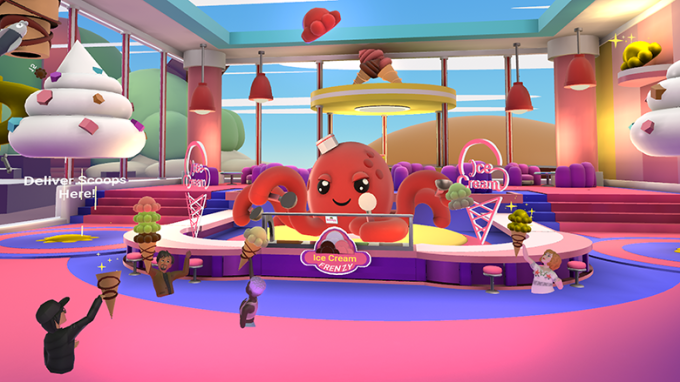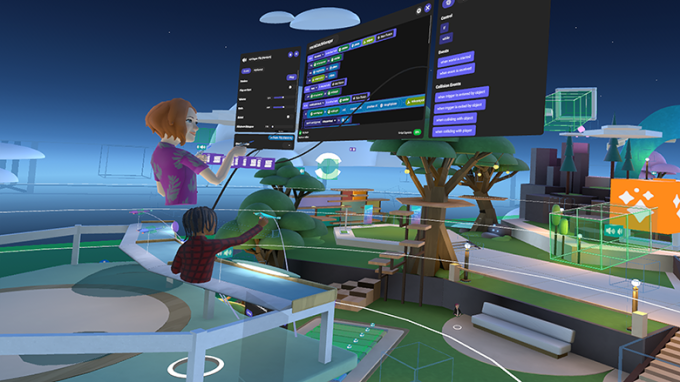The company formerly known as Facebook is taking a step toward its goal to transport us to the metaverse. Now, Horizon Worlds — the Second Life or Minecraft of Meta’s VR apps — is expanding out of invite-only beta, opening up to all users over 18-years-old in the US and Canada. This is a huge milestone for the app, which was first announced in 2019.
The free app is a social world-building playground. When you enter the app (after a short tutorial if it’s your first time), you’re presented with three options: play (games), attend (events), and hang out. You can explore experiences that Meta itself created, plus community-generated spaces, which anyone can build. In October, the company announced $10 million in funding for creators building these VR experiences, incentivizing users to make new games and hangouts.

Image Credits: Meta
Before you enter any of these virtual spaces, the platform reminds you that anyone you interact with is a real person.
On the primary menu, which you access by looking at your left wrist, there’s a safety button that you can press, which instantly sends you to your “Safe Zone,” a private room where you can take a break or block, mute, and report people.
One of the first hangout spaces users might encounter is the Plaza, a space created by Meta. Our legless avatar threw paper airplanes with strangers and even spoke with a community moderator, who chatted with newcomers and helped explain how the controls work (they’re intuitive enough, but take a few minutes to get used to). It was a weirdly pleasant experience, absorbing the futuristic scenery and listening as people around us chatted about their avatars’ outfits, making metaverse small talk.
But in user-generated spaces, there won’t always be these human moderators who could intervene if something went wrong. It’s not realistic to expect to see a Meta representative in every space in Horizon Worlds — it might even feel a bit creepy — but the metaverse poses new challenges in keeping people safe online.

Image Credits: Meta
Meta has struggled to remove hate speech and violent images from Facebook, and the company is reeling from the impact of leaked internal documents that show how its app Instagram can be dangerous for teens’ mental health. Just yesterday, Head of Instagram Adam Mosseri testified before Congress about online safety for children and teens. But a metaverse world poses additional challenges, as it’s a more immersive audio-visual experience. Clubhouse struggled to moderate its live audio rooms, and even Twitter has run into issues with harmful content on Spaces as of late. Twitch streamers have dealt with “hate raids,” too.
But in terms of user experience, Horizon Worlds is a massive step up from Horizon Venues, Meta’s platform for immersive events (once Worlds is globally accessible out of beta, Venues might be rendered obsolete).
Right now, if you use Venues, you just get dropped into a blocky entry area, like a hallway in a movie theater. You can choose from a few rooms to enter, where you can watch a pixelated recording of a Billie Eilish concert on loop, for example. Worlds already feels more engaging and promising than Venues. But as Horizon Worlds opens itself up for millions of users to join, Meta needs to prove that it’s capable of keeping a social platform safe.
To run Horizon Worlds, you’ll need to download the free app on a Quest 2 device. As of Jan. 13, 2022, it will no longer be supported on Quest 1.

